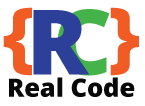Even a great looking website can be terrible for your business.
Hiring a web designer can guarantee you a flashy looking website, but unless you know exactly what it is you want your site to achieve and what you want your visitors to do, it will only ever be a flashy looking website without a real purpose. Here are some often overlooked tips on how to create a high-performance website for your business.
1. Create A Home Page With Purpose
First impressions are very important when it comes to web design since you only have a few seconds to impress. A cluttered home page with too much information is very confusing and more likely than not your visitors will leave and look elsewhere. There are too many websites that rely on their homepage to provide all the information at once.
The purpose of your home page is to get your visitor to move along. Whether it’s by clicking through to register or sign up form, scrolling down to below the fold to read your site disclosures or to visit inside pages for more information. Keep your home page streamlined and with a clear purpose in mind.
2. Check User Experience
User experience is all about how your visitors feel when using your website. Colours and especially your page layout play a big role in your user’s experience (UX). It’s best to stick with two to three design colours and place information where your website visitors think it should be. Make your most important content stand out from the rest.
Go through your analytics report and find out which pages have high bounce and exit rates, as this usually indicates where the problems are. There are many different heat mapping and recording tools available that allow you to see exactly how your visitors are using your site. You will be able to tell if they get lost on a page, and if they are actually finding and clicking on the links you want them to click on. Be sure to check your site on different devices.
3. Have A Call-to-Action
A strong call to action is a link or button that will bring your visitor to a conversion page that acts as the final step before submitting a form, making direct contact or purchasing a product online. Always give your website visitors a clear direction on where you are taking them and what it is you want them to do. Keep it as simple and straightforward as possible.
Use your analytics software again to find out what pages visitors are landing on first. If your home page gets the most traffic, make sure there are clear links to your sub-pages. If inside pages are your more popular landing pages, find out if the traffic is targeted so you can begin marketing your content more accurately. Clarify your sales message so it stands out and is heard by your customers.
4. Write An About Page
A good about me/us page should be about you or your company, as well as your customers and website visitors. This sounds more difficult than it actually is. Josh is the marketing manager at Megaphone Marketing, he states the following in one of his articles, “Visitors are selfish people, so even when they are looking up more about you, in reality, they’re looking up extra information on whether you’re the right person to help them.”.
Make your about page easy to find for your visitors and include a picture of yourself and/or your team. Focus on spelling out your benefits and why your potential customers should choose you, or from you, instead of your competitors.
5. Offer Compelling Content
Having a ton of articles with worthless content doesn’t do you, your website or your visitors any good. Find out what your visitors want to read or learn about and then write appealing content in your own unique voice. Look at the front page of Digg.com or other social marketing sites to get content ideas.
To set yourself apart from your competition in today’s oversaturated online market you need to be able to create interesting and relevant content. You could create free tools for your customers to use or write a funny commentary about your industry. How about putting a new spin on a traditional product or creating a comprehensive FAQ that covers topics your competitors don’t talk about.
Your website is often the first line of contact between your business and a potential customer.
You might just have the most awesome, customized theme for your website, lots of pages and gorgeous pictures, that’s great if you understand what a website means to your business. If not, your existing site might not perform very well. I hope these tips will help you create a better, high-performance website that will provide you with a steady stream of relevant traffic and sales.
